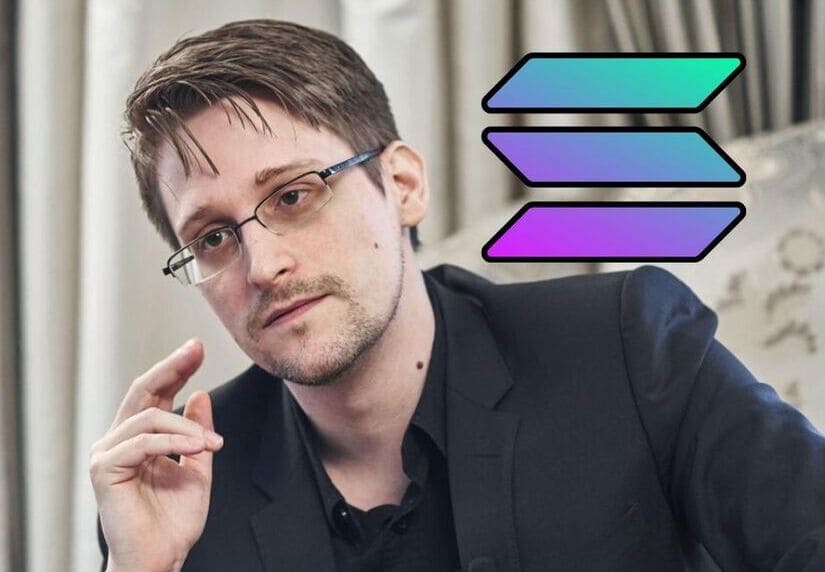TL;DR
- Edward Snowden calls for decentralization, emphasizing the risks of AI-driven surveillance.
- He criticizes the influence of venture capital on blockchain projects, particularly Solana.
- He advocates for open-source technologies as a means to empower individuals and protect autonomy.
At a recent appearance at the Redacted conference in Bangkok, Edward Snowden, the renowned privacy advocate and former NSA contractor, addressed the growing concerns surrounding decentralization, artificial intelligence (AI), and the influence of venture capital on blockchain networks. Snowden’s remarks underscored the need for decentralization as a safeguard against surveillance and the increasing concentration of power within tech industries.
Snowden highlighted the dangers of AI-driven surveillance, explaining how the technology allows governments and corporations to process vast amounts of personal data in real time. He warned that this could lead to a situation where AI systems are used to monitor individuals on a massive scale, searching for anomalies in behavior or appearance. This type of surveillance, he argued, could strip people of their privacy and autonomy, paving the way for a future where constant monitoring becomes the norm.
Turning his attention to blockchain technology, Snowden critiqued the influence of venture capital (VC) on blockchain projects, with a particular focus on Solana. He referred to the network as “born in prison” due to its heavy reliance on VC funding.
Snowden Advocated for the Use of Open-Source Tools
He suggested that such financial backing could undermine the true decentralization that many blockchain projects aim to achieve. While he acknowledged Solana’s rapid growth, Edward expressed concern that the network had ceded too much control to investors, potentially limiting its ability to operate independently.

Snowden also drew parallels with other blockchain projects, citing how large stakeholders, like Andreessen Horowitz (a16z), can exert considerable control over decentralized projects. He pointed to a previous voting instance where a16z’s large holdings allowed them to override the majority vote, demonstrating the influence of centralized players in decentralized networks.
In addition to his critiques, Snowden advocated for the use of open-source tools and technologies. He argued that open-source models are empowering because they allow individuals to understand and apply blockchain technology more effectively. For Edward, embracing open-source software is a way for individuals to maintain control and autonomy in an increasingly centralized world. He encouraged attendees at the conference and the broader tech community to adopt these tools in order to safeguard privacy and decentralize power


